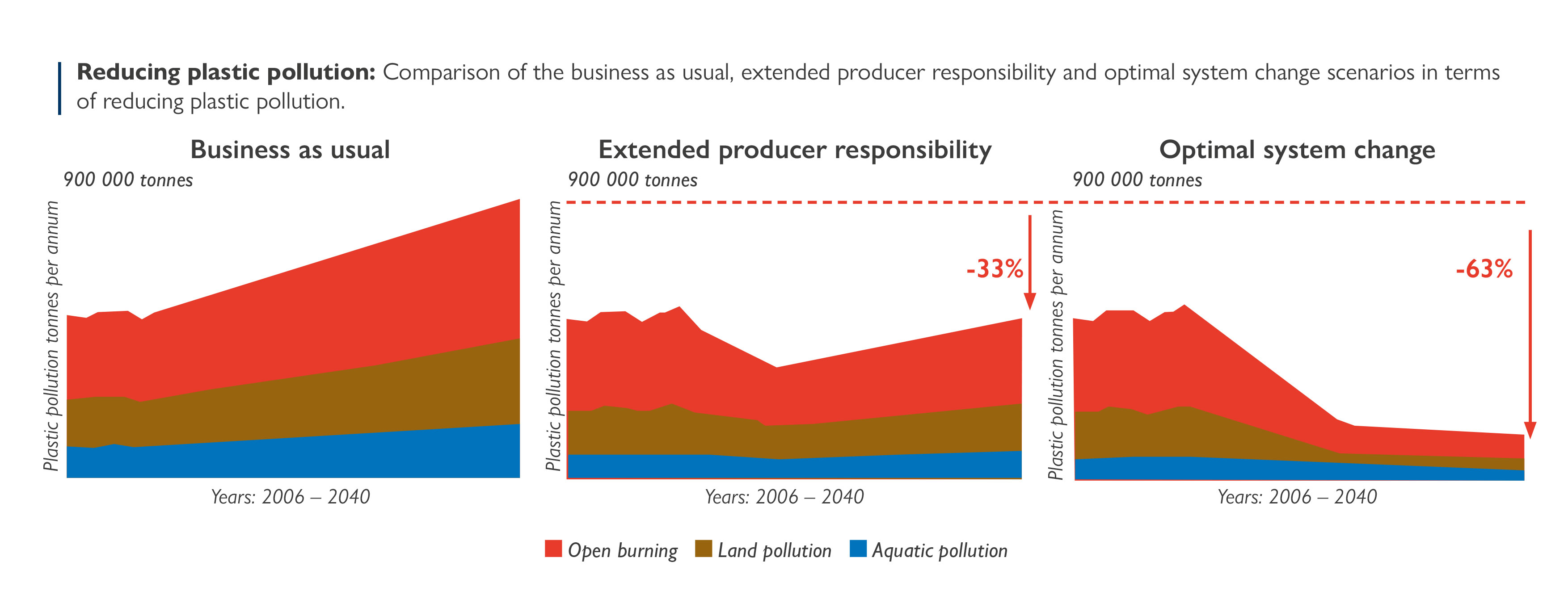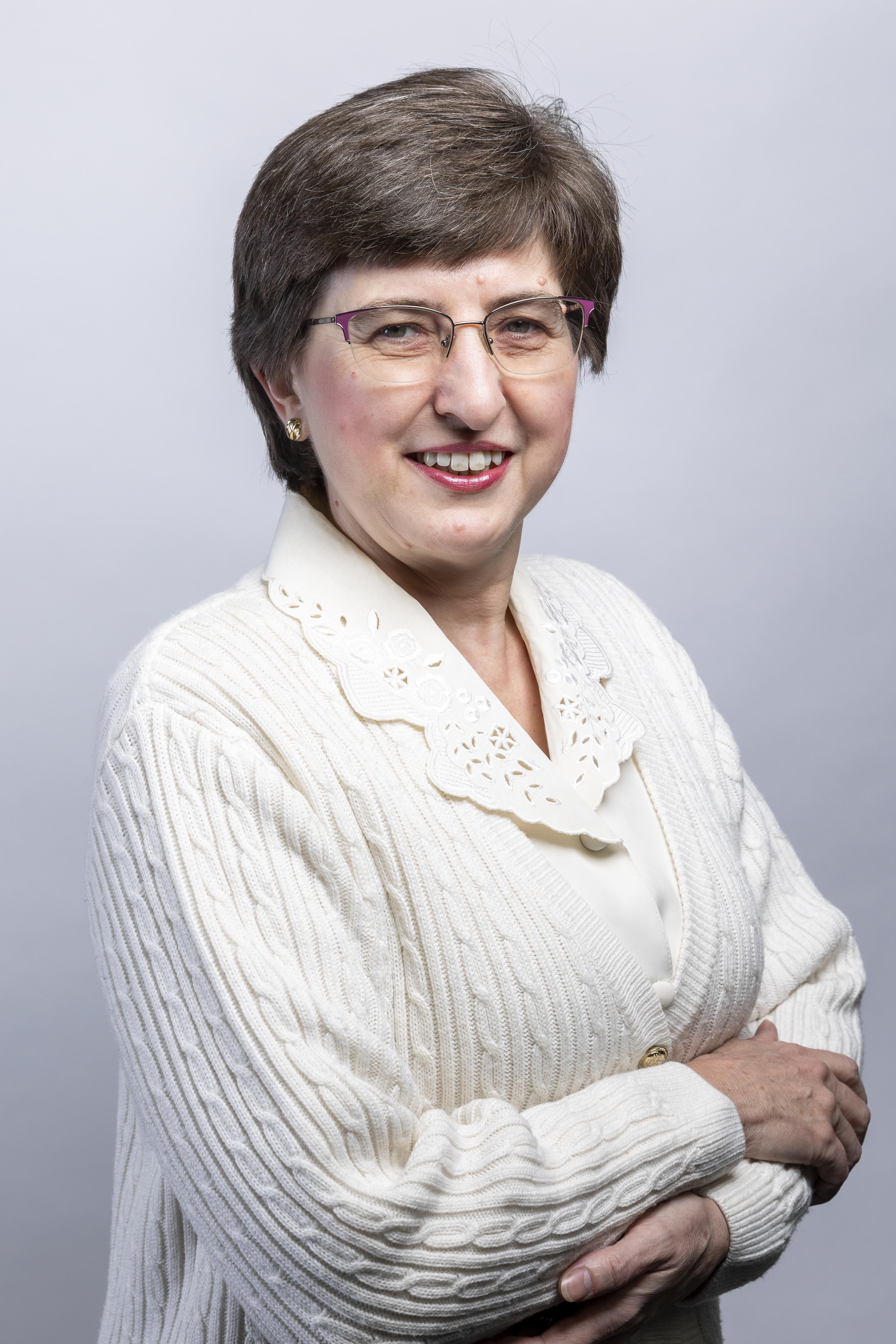The evolution of a career dedicated to solving the plastic crisis
Plastic pollution solutions
Prof. Suzan Oelofse enjoys spending time in nature and feels affected when she notices plastic in protected nature reserves, knowing the impact that convenience products have on the environment when they are disposed of in public areas. These factors triggered her to be part of the solution, and today, she works in the fields of plastic sustainability and the circular economy.
Although she aspired to be a biology teacher, Oelofse’s experience in the genetic manipulation of cut flowers laid the foundation for a research career that focuses on the environmental impacts of food and waste management in South Africa. As a principal researcher at the Council for Scientific and Industrial Research (CSIR), she remains inspired in her career thanks to a powerful seed of self-belief that her mother planted in her. Today, she dedicates most of her time to spearheading the organisation’s evolving work on contextualising the largely untapped benefits of a circular economy.
At a time when South Africa was ushering in its democracy and change was in the air, Oelofse worked in government at the Department of Environment and the Department of Water Affairs, respectively. A botanist by training, she noticed a job opening at the CSIR in the waste space. “Along with Prof. Linda Godfrey, who is now the Manager for Circular Innovation SA, we worked on many waste-related projects,” she says. Their teamwork laid the foundation for building the waste research portfolio at the organisation.
“I did not set out to have a career researching plastics. It was just the way my career progressed,” she remarks. Her research mainly centred on waste management, including a few projects that involved wastewater management, integrated water and waste management, and skills development in municipalities on water-related matters. More recently, the research group has shifted its focus to broader aspects of the circular economy, with waste being the entry point – specifically, waste streams that have the potential for beneficiation.
Propagating plants pushed her to purpose
Oelofse completed all her academic qualifications at the University of Johannesburg, where she attained a Bachelor of Science in Botany and Zoology. “At the time, I was considering a teaching career, but following the completion of my undergraduate degree, I enrolled for an Honours degree in Botany. Thanks to securing NRF bursaries, I continued to also complete a Master’s degree focusing on plant tissue culture and a PhD in Plant Physiology.”
From cultivating cut flowers to curbing waste
Determined to seek greener pastures, Oelofse’s academic experience with plant tissue culture led to her securing a job in Hadeco’s plant tissue laboratory for a year. The routine role involved initiating virus-free cultures of bulbous plants for the cut-flower and horticultural markets. “I enjoyed this immensely. As fate would have it, I received a call from the Department of Environment Affairs for a job interview in the waste management sector. A position I had forgotten I had applied for a year prior.” The department was in the process of developing the policy on integrated pollution control and waste management and it was responsible for coordinating the stakeholder engagement processes involved in its formulation. “I thoroughly enjoyed this work, and I felt like I was making a difference.”
She soon learnt that her academic preoccupation with plant anatomy strongly influenced her appointment at the department as an environmental official. At the time, genetic modification of crops and food was receiving a great deal of attention, along with its pollution potential.
She was always conscious of issues related to waste. “When I worked at the Department of Water Affairs, I issued water-use licences to industries. I saw the waste streams at the waste piles in the industry, and it baffled me as to why there was no alternative means to deal with the waste or reducing the products that resulted in piles of waste.”
Recycle, reuse and reprocess
With the increasing international emphasis on addressing the impacts of plastic pollution, Oelofse’s research is directed at plastics. A host of local interventions were informed by international trends that have inspired the CSIR’s research group’s interests in plastic sustainability and the circular economy.
The CSIR secured funding from the Government of Japan through the United Nations Industrial Development Organization to investigate South Africa’s transition from conventional plastics to more sustainable alternatives.
“In a World Bank project focusing on transitioning to a circular plastics economy, we were able to identify existing projects and programmes on circularity in South Africa.
“In terms of waste management, we were able to identify the lack of waste separation at source as one of the major hindrances to our economy because you cannot build a circular economy unless you have collection systems for materials that can go back into the economy for recycling, reuse and reprocessing,” she adds.
Testing tools at the country level led to the implementation of the Pathways Tool, a rigorous data-driven process that has resulted in the development of a plastics systems map for South Africa. This assisted the research team in identifying all the plastic flows in the country’s economy. The Pathways model has been deployed to test different scenarios to determine their impact on plastics leaking into the environment over time. The Pew Charitable Trust has since approached the CSIR to help roll out this tool in other African countries to support evidence-based strategy development.
The CSIR has also researched the impact of microplastics on marine ecosystem services, quantifying the cost of marine plastic pollution in South Africa at R14 billion per year. “We also hope to be involved in a Global Environment Fund project that focuses on plastics in the food and beverage sector. Through this and with engagement with the World Wide Fund for Nature South Africa, the CSIR will also work on a global plastics inventory, exploring actual plastics and the regulatory environment and framework in collaboration with WWF-SA,” she says.
Making room for women in plastic-related research
Oelofse suggests that, in her observation, women tend to be more environmentally conscious and forward-thinking regarding the long-term impacts of plastic products when they are not managed properly. She also believes that there is a need for more women in the design and manufacturing aspects of plastic products, which have traditionally been male-dominated career fields. “It is the nature of women to be aware of human health and environmental management aspects.
Like many women, Oelofse is not immune to the challenges women face in their careers. Despite the odds, with experience, she has learnt to claim her power by embodying a spirit of enthusiasm, which she believes has helped her overcome some barriers.
“For women who aspire towards following a similar career path, I would encourage them to persevere. Do not get upset when things do not go the way you expect them to, but do stand your ground. I learnt to own my space and to speak with authority.”
Towards a plastic-conscious society
Oelofse believes that there is an increased awareness of the risks of plastic pollution – that less plastic packaging can be used for certain products and behavioural changes towards increased use of reusable shopping bags, with the exception that plastic bags are still available for purchase. The retail sector has observed a decrease in the use of plastics due to the perceived impacts of the Global Treaty for Plastic Pollution and increased government regulation – including the implementation of Extended Producer Regulations, which hold producers accountable for ensuring that their products are recyclable, recoverable.
Leaving a legacy
Oelofse describes the working environment at the CSIR as supportive, enabling her to pursue her interests. She has found a direct link between food waste and plastic waste, and her attendance at an international conference once unlocked the right set of circumstances for her to secure a Parliamentary Grant to fund research on food waste, which led to her publishing a peer-reviewed paper and securing external funding to further her research.
Currently, the United Nations Plastics Treaty is being negotiated to reduce plastic pollution in the environment. Oelofse had an opportunity to be involved, as she was approached by the United Nations Industrial Development Organization to assist in drafting a policy brief on designing for circularity as input into the negotiations. Furthermore, she has provided input into case studies on work that the CSIR has done on plastics for the International Solid Waste Association, contributing towards the United Nations Plastics Treaty negotiations.
“Ultimately, I want to feel as though I have contributed something lasting. I still think about what my lasting legacy will be and remain determined to make a difference,” she concludes.



